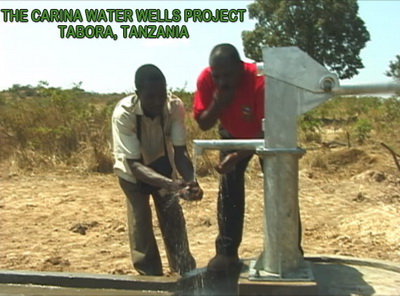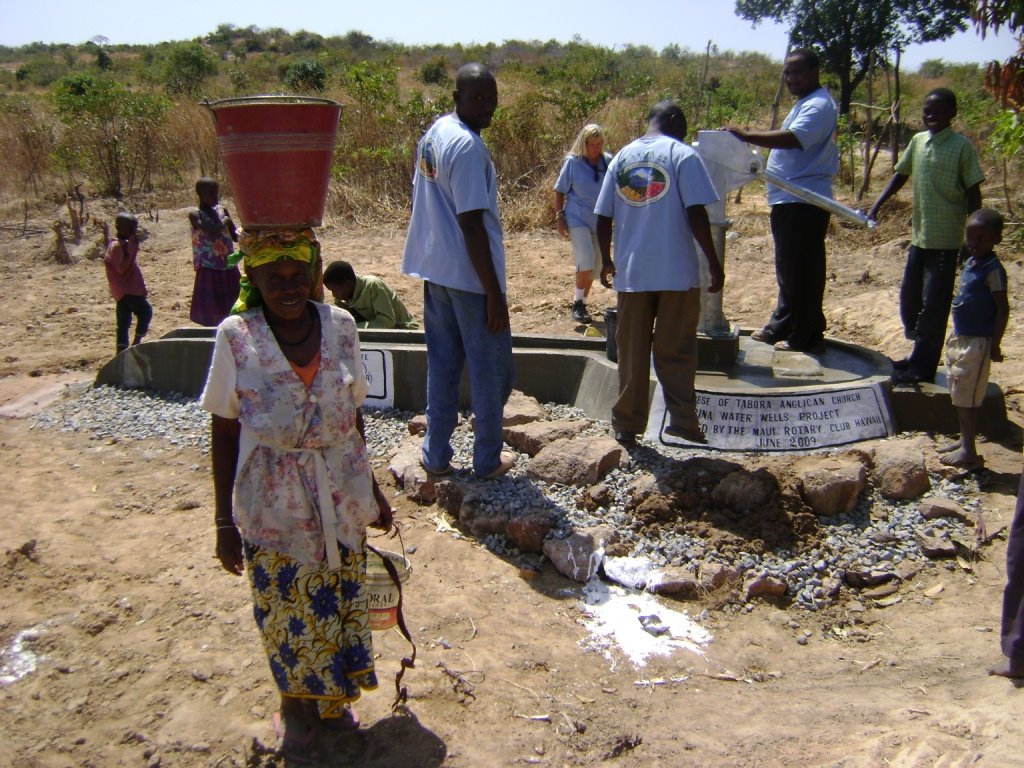Introduction to the Carina Water Wells Project
Introduction:
The first Carina Water Well was installed at Inonwela Village Tabora District in February 2005. The majority of villages in the district do not have a clean water source. 50% of malnutrition is associated with diarrhea and worm infections as a result of drinking unsafe water, inadequate sanitation and insufficient hygiene. It is the second leading cause of death among children.
Women and children get up at dawn and walk up to 5 kilometers daily to find water which is dirty & contaminated. Fighting often occurs between women at the water source, it takes a good part of the day to collect it and return home. Water collection has traditionally been women/girls work, due to this girls frequently miss school, thereby perpetuating the cycle of poverty and early marriages.
The villagers were all very grateful for the opportunity to have a 2nd water pump in their village of 2,000 people. The recommended use is for 250 people, 800 use it. In addition to the construction of wells and rainwater harvesting tanks the Carina Water Wells Project Heath Officer Johnny Kazimoto taught a class in water/sanitation/health/hygiene to the village water committees and students.
Christopher Nyamwanji (Chairman of NGO Sudeso) the Carina Water Wells Project Administrator, and I traveled to Inonwela village for a presentation of the water program and a meeting with the village elders. This was followed by an introduction to me explaining the reason for my visit. I also showed them two photos of Carina and I when she was a newborn in Tabora.
A group of women put on an “ngoma”, which is traditional dancing, drumming, singing, and whistle blowing! We ate lunch at the village school it was served by the women who didn’t eat with us, which is the custom in patriarchal societies. First they demonstrated their newly acquired hygiene methods, offering us a jug of water with soap for hand washing over a bowl. The meal consisted of very tough chicken with rice, and supplied us with plates and spoons to eat with which was a luxury! The village elders ate only rice with their hands from a big communal plate.
The majority of villages in the district do not have any water. Women and children get up at dawn and walk up to 5 kilometers daily in search of it, which takes up half of their day. The women get into fights over water and children especially the girls, often don’t make it to school thus perpetuating the cycle of poverty.
Without water there is no life.
*The Carina Water Well Project is dedicated in memory of my daughter Carina Chantal Owen Madsen who was born in Tabora December 19th 1964 and died unexpectedly on August 4th 2004 in Denmark where she lived with her husband.
Asante, Thank you, Mahalo
Jacqueline Simone Ambrose
Carina Water Wells Project
1057 Makawao Avenue, Makawao Maui
HI 96768 USA
Email: carinawaterwells@gmail.com
“Carina Water Wells Project Tabora Tanzania“ film placed 3rd in the sustainability category in an on line international film contest (2010) on ViewChange.org (sponsored by the Bill & Melinda Gates Foundation)
The Carina Water Wells Project Impact Assessment Report 2015 – Sponsored by Lightco Group Toronto Canada (www.lightco.ca/)
The IA Report above offers details about the status of each five water points constructed

